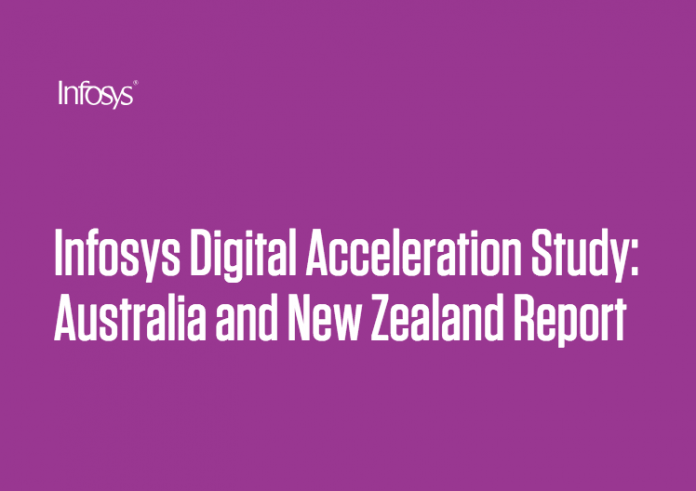
Just 17% of Australian and New Zealand businesses are digitally mature enough to build disruptive business models at scale compared to a global cohort of 22%, a new study has found.
Carried out by global consulting and technology leader Infosys, this digital acceleration study surveyed 175 senior businesses from the region to better understand where Australia and New Zealand’s largest enterprises are in their digital transformation journey and what they require to accelerate that journey.
It classified businesses in three clusters based on digital maturity, including their willingness to undergo digital transformation to meet business objectives (Visionaries), their commitment to improving their customer’s experiences through digitalisation (Explorers) and those who have partially deployed digital initiatives but are focused on efficiency-driven outcomes (Watchers).
The report identified approximately 17% of AU and NZ respondents as visionaries, compared to 22% of their global counterparts, with 55% classified as Explorers, with a focus on digital transformation for the differentiation value it gives them in either customer experience or an uplift in brand value. This is higher in comparison to global peers of whom 50% are categorised as Explorers.
The remaining 28% of AU and NZ respondents were identified as Watchers, on par with global research.
Andrew Groth, Senior Vice President and Regional Head Australia and New Zealand, Infosys, said common to all groups of Senior IT decision-makers is an understanding that business agility (85%), enhancing digital culture (82%), and delivering seamless customer experience (78%) are key organisational drivers to enable them to build disruptive business models at scale.
“Digital transformation is a process of constant re-invention, where businesses must implement disruptive models that create agility in constantly driving new experiences for the customers at scale,” Mr Groth explained.
“This research illuminates how businesses in Australia and New Zealand can successfully move forward in the journey to digitally accelerate, to leverage the opportunities available to better operate in a digitally-driven market at significant scale.”
“Over the years, large businesses within the region are progressing along different digital transformation journeys with varying levels of maturity. We can see a massive opportunity for businesses in the region to leverage digital and disruptive technologies with speed, and also use learnings from some of the more mature global peers from their digital transformation journeys.”
He said the research uncovered that a large number of organisations are encumbered by rigid technology, a digital skills gap and a culture gap that stifles innovation, which is key to achieving a digitisation vision.
“This is ultimately resulting in businesses being unable to create the customer experience and competitive advantage at speed, eventually losing the mindshare with their customers.”
Another key takeaway from research is the fact that internal challenges rather than external market forces were cited as a major barrier to change with resourcing and legacy issues preventing organisations from making rapid progress.
“What is apparent in this research is that business leaders know what they need, but often underestimate the full impact of digital transformation once you dig deeper,” Mr Groth continued.
“There is a skewed view of digital transformation, with 67% of respondents having a clear outlook on opportunities, and a considerably lower 50% having a clear understanding on threats.”
“Interestingly, as businesses move to becoming digitally mature, there is a correlation between maturity and higher risk awareness, but we have some way to go in this market.”




















